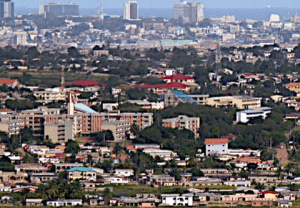Conference on Urbanisation in Africa opens in Accra
 Ghana is hosting a two-day conference to reflect on the theme: “Urbanisation in Africa: Trends, Promises and Challenges”, and strategies for the development of urban interventions that makes cities productive, inclusive and resilient.
Ghana is hosting a two-day conference to reflect on the theme: “Urbanisation in Africa: Trends, Promises and Challenges”, and strategies for the development of urban interventions that makes cities productive, inclusive and resilient.
The conference, which was organised by the World Bank in partnership with the Africa Centre for Economic Transformation, brought together renowned thinkers and leaders made up of researchers, practitioners and policy makers from around the world.
It would create the platform for sharing experiences of the urbanization process from a number of African countries, including Cote d’Ivoire, Ethiopia, Kenya, Mali, Tanzania, and Uganda in order to utilise the increasing urban population for positive development.
Mr Seth Terkper, the Minister of Finance and Economic Planning, in a speech read for him, at the opening, said, a critical consideration of developments in Africa revealed that the African society was rapidly changing from rural to urban, with cities and towns expanding not only in terms of population, but also spatially.
He said cities were now taking more space and encroaching on rural agriculturally-productive lands with its consequent threat to food security, with statistics now showing that by 2050, about 64 per cent of the developing world, and 86 per cent of the developed world, would be urbanised.
Urbanisation, he said, could, however, be described as a two-edged sword with both positive and negative attributes.
Positively, he said, urbanization could lead to vibrant developments in education infrastructure, culture, commerce and industry as well as technological innovation and the provision of opportunities for various manufacturing and service industries.
Conversely, he said, “The situation could lead to the development of slums, increase in criminal activities, instability, spread of diseases and more disturbing, an increased generation of solid waste, which contributes to land conversion for landfills, and threat to coastal ecosystems which undermines economic activities such as fishing and tourism”.
Mr Yusupha Crookes, the World Bank’s Country Director, in a speech also read for him, however, said even though the broad contours of policy and institutional challenges for urbanization were known to policy makers, evidence on the key aspects of Africa’s urbanization process was still sparse.
He said Africa’s cities, were expected over the next three years to accommodate nearly half a billion new residents, and the fact that urbanization was yet to take place in the continent, presented a unique opportunity.
According to him, urban centres were dynamic systems, and policy choices made early in the urbanization process could have both positive and negative long-term effects for many generations to come.
“Well-designed urban policies and strategic investment at this point of urbanization could, therefore, produce significant differences in making Africa’s cities efficient, inclusive and environmentally sustainable,” he said.
Mr Crookes said to make cities incubators of ideas, hotbeds of innovation, and engines of growth, African countries would needed to focus on laying down strong regulatory and policy commitments for long-term development, investments in infrastructure and services to make cities competitive and many other areas.
Countries, he said, would need to build institutional and financial systems at all levels in order to implement city development plans and to deliver services efficiently.
He said the presentations at the conference would provide the much needed evidence on some of the policies that were being implemented in many African countries, reflecting on what seemed to work and what did not.
Ghana’s Urbanisation Review was launched only two weeks ago and the conference would provide the forum to discuss the findings and recommendations from similar reviews in other African countries.
Mr Collins Daouda, the Minister of Local Government and Rural Development, in a speech read for him, said studies showed that the share of Africans living in urban areas would grow from 36 per cent in 2010 to 50 per cent by 2030, which was the fastest rate in the world.
However, this growth had not been well utilised due to lack of proper planning, which had resulted in challenges such as increased poverty levels due to unavailability of jobs, lack of affordable housing, climate change issues such as flooding and public health crisis, he said.
The conference, he promised, would provide robust evidence on some of the policies that were recommended by the Ghana Urbanisation Review.
Source: GNA
